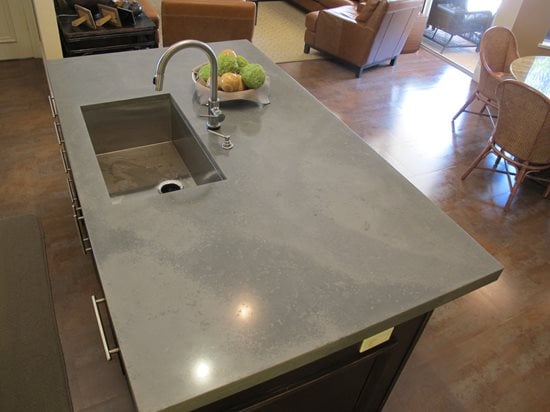Concrete countertops have gained popularity due to their unique aesthetic and durability. However, maintaining these countertops requires proper care and attention to ensure their longevity and appearance. One of the most critical aspects of maintaining concrete countertops is sealing. Sealing the concrete helps to protect it from stains, water damage, and wear. Depending on the type of sealer used, it may need to be reapplied periodically. Penetrating sealers, for instance, can last several years, while topical sealers might require more frequent reapplication. The frequency of resealing can also depend on the usage level and type of countertop. High-traffic kitchen countertops may need more frequent attention compared to those in less-used areas.
Regular cleaning is another essential aspect of maintaining concrete countertops. It’s crucial to use a pH-neutral cleaner to avoid damaging the sealer or the concrete itself. Harsh chemicals and acidic or alkaline cleaners can degrade the sealer, making the countertop more susceptible to stains and damage. A soft cloth or sponge should be used for cleaning, as abrasive scrubbers can scratch the surface. Wiping up spills immediately is also vital to prevent stains from setting in, especially with substances like wine, coffee, or oil that can easily penetrate the surface.
Polishing concrete countertops can help maintain their shine and smoothness. This process involves using a fine-grit abrasive to gently buff the surface. Polishing not only enhances the appearance but also helps to close up micro-pores, making the countertop more resistant to stains and moisture. Polishing should be done periodically, depending on the wear and tear the countertop experiences. For heavily used countertops, more frequent polishing may be necessary to maintain their luster and smooth texture.
Avoiding excessive weight and impact is crucial in maintaining the structural integrity of concrete countertops. While concrete is robust, it can still crack or chip under extreme pressure or sudden impacts. It is advisable not to stand or sit on the countertops and to avoid dropping heavy objects on them. Using cutting boards and trivets is also recommended to protect the surface from scratches and thermal shock. Hot pots and pans should never be placed directly on the concrete, as the rapid temperature change can cause the concrete to crack.
Routine inspections can help in the early detection of any potential issues with concrete countertops. Checking for signs of wear, such as cracks, chips, or dull areas, allows for timely repairs, which can prevent more extensive damage. Small cracks or chips can often be repaired with a concrete patching compound, while larger issues may require professional intervention. Regular inspections also help ensure that the sealer is still effective and that the countertop is protected.
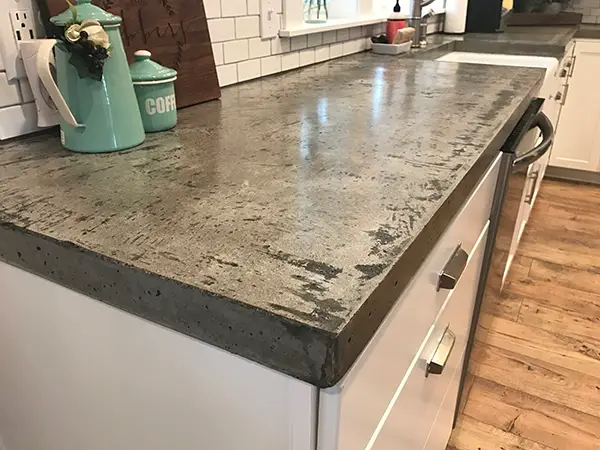
Using the right products for maintenance is essential for preserving the quality of concrete countertops. Products specifically designed for concrete should be used for sealing, cleaning, and polishing. General household cleaners and sealers might not provide the same level of protection and could potentially harm the concrete. There are numerous products available on the market tailored for concrete countertops, and consulting with the manufacturer or a professional can help determine the best options for your specific needs.
Maintaining the aesthetic appeal of concrete countertops can also involve periodic re-staining. Over time, the color of the concrete can fade or become uneven due to exposure to sunlight and regular use. Re-staining can rejuvenate the appearance and provide a fresh look. This process involves applying a concrete stain and then sealing it to protect the new color. The type and color of the stain can be chosen to match the original appearance or to create a new look entirely.
It’s also important to consider the type of concrete mix used in the countertops, as this can affect maintenance requirements. Some mixes may be more porous or prone to cracking than others. Understanding the composition of your countertops can help tailor the maintenance routine to better suit their specific characteristics. For example, countertops with a higher aggregate content may require more frequent sealing and polishing to maintain a smooth surface.
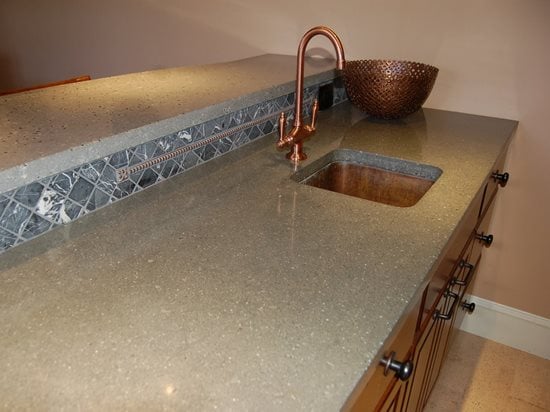
Environmental factors can also influence the maintenance needs of concrete countertops. In areas with high humidity, countertops may require more frequent sealing to protect against moisture penetration. Similarly, in climates with significant temperature fluctuations, the risk of cracking due to thermal expansion and contraction is higher. Being mindful of these factors can help in planning a more effective maintenance schedule.
One of the benefits of concrete countertops is their customizability, which allows for the inclusion of various decorative elements such as embedded stones, glass, or shells. However, these elements can create uneven surfaces that might require additional care. Special attention should be given to these areas during cleaning and polishing to avoid damaging the decorative elements or the concrete itself.
Concrete countertops can also benefit from the application of a wax layer in addition to the sealer. Waxing provides an extra layer of protection against stains and scratches and can enhance the sheen of the surface. This layer can be reapplied periodically, depending on the usage and the level of wear. Waxing is relatively simple and can be done as part of a regular maintenance routine.
Education on proper use is vital for anyone utilizing concrete countertops. Ensuring that all users understand the importance of wiping up spills promptly, using cutting boards, and avoiding placing hot items directly on the surface can prevent much of the damage that occurs with everyday use. Clear guidelines and reminders can help maintain the countertops in top condition.
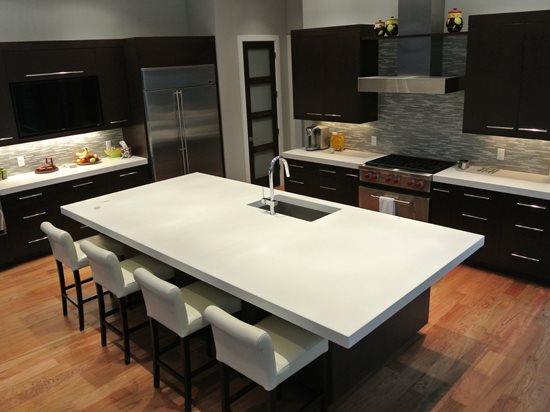
Preventive measures are equally important in the maintenance of concrete countertops. Using coasters for drinks, placemats under dishes, and avoiding prolonged exposure to direct sunlight can all help to reduce wear and tear. Small habits like these can make a significant difference in maintaining the appearance and durability of the countertops over time.
Investing in professional maintenance services periodically can also be beneficial. Professionals can perform deep cleaning, polishing, and resealing more effectively than DIY methods. They can also inspect the countertops for any underlying issues that might not be visible to the untrained eye. Professional services can extend the life of the countertops and keep them looking their best.
Understanding the signs of wear and knowing when to take action is crucial in maintaining concrete countertops. Dullness, increased staining, and visible cracks are all indicators that maintenance is needed. Addressing these issues promptly can prevent them from worsening and requiring more extensive repairs. Regular maintenance checks and immediate action can ensure the longevity and beauty of concrete countertops.
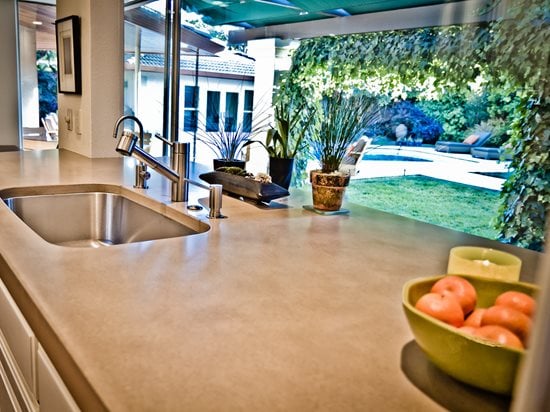
Common Mistakes to Avoid
When maintaining concrete countertops, some common mistakes can compromise their integrity and appearance. One of the most frequent errors is using harsh cleaners that can damage the sealer and the concrete itself. Many people mistakenly use bleach or vinegar, which are too acidic for concrete surfaces. Instead, a pH-neutral cleaner is recommended to preserve the sealer and protect the countertop.
Another common mistake is neglecting to reseal the countertops regularly. The sealer is a critical component in protecting the concrete from stains and damage, and failure to reapply it as needed can lead to significant issues. Depending on the type of sealer and the level of use, resealing might be required every few years or more frequently.
Improper handling of hot items is another error. Placing hot pots and pans directly on the concrete can cause thermal shock, leading to cracks. Always using trivets or heat pads can prevent this damage. Similarly, using the countertop as a cutting board can cause scratches and wear down the sealer. Always use a separate cutting board to maintain the surface integrity.
Failure to clean spills immediately is a mistake that can lead to staining. Concrete is porous, and even with a sealer, prolonged exposure to liquids can result in permanent stains. It’s important to wipe up any spills as soon as they occur, especially those involving acidic or staining substances like wine, citrus juice, or oils.
Neglecting regular maintenance routines such as polishing and waxing can also diminish the appearance and durability of the countertops. Regular polishing helps maintain a smooth and shiny surface, while waxing provides an additional protective layer. Skipping these steps can lead to a dull, unprotected surface that is more prone to damage.
Lastly, using the wrong repair techniques for cracks or chips can worsen the damage. DIY repairs with inappropriate materials can lead to mismatched colors and textures, making the damage more noticeable. Consulting a professional for significant repairs is often the best course of action to ensure the repairs blend seamlessly with the rest of the countertop.

How often should I reseal my concrete countertops?
The frequency of resealing concrete countertops depends on the type of sealer used and the level of usage. Penetrating sealers may last several years, while topical sealers might need to be reapplied every 1-2 years. High-traffic areas, such as kitchen countertops, may require more frequent resealing. Regularly inspect your countertops for signs of wear, such as increased staining or dullness, to determine if resealing is necessary.
Can I use household cleaners on my concrete countertops?
It is not advisable to use general household cleaners on concrete countertops, as many contain harsh chemicals that can damage the sealer and the concrete. Instead, use pH-neutral cleaners specifically designed for concrete surfaces. Avoid using acidic or alkaline cleaners, such as bleach or vinegar, as they can degrade the sealer and make the countertop more susceptible to stains and damage.
What should I do if my concrete countertop gets scratched?
Minor scratches on concrete countertops can often be repaired by polishing the surface with a fine-grit abrasive. For deeper scratches, a concrete patching compound may be required. It is important to match the color and texture of the patching material to the existing countertop to ensure a seamless repair. In some cases, consulting a professional may be necessary for the best results.
How can I prevent my concrete countertop from cracking?
Preventing cracks in concrete countertops involves several measures. Avoid placing heavy objects or standing on the countertops to reduce the risk of structural stress. Use trivets or heat pads to protect the surface from thermal shock caused by hot pots and pans. Regular maintenance, such as resealing and polishing, also helps to reinforce the surface and reduce the likelihood of cracking.
Is it necessary to polish concrete countertops?
Polishing concrete countertops is recommended to maintain their smoothness and shine. Polishing helps to close up micro-pores, making the surface more resistant to stains and moisture. It also enhances the appearance by creating a sleek, shiny finish. Depending on the level of use, polishing may be required periodically, and it is a crucial part of regular maintenance to keep the countertops looking their best.
Concrete Countertops – Pros, Cons, DIY & Care
Concrete Countertops – Pros, Cons, DIY & Care – Concrete Network
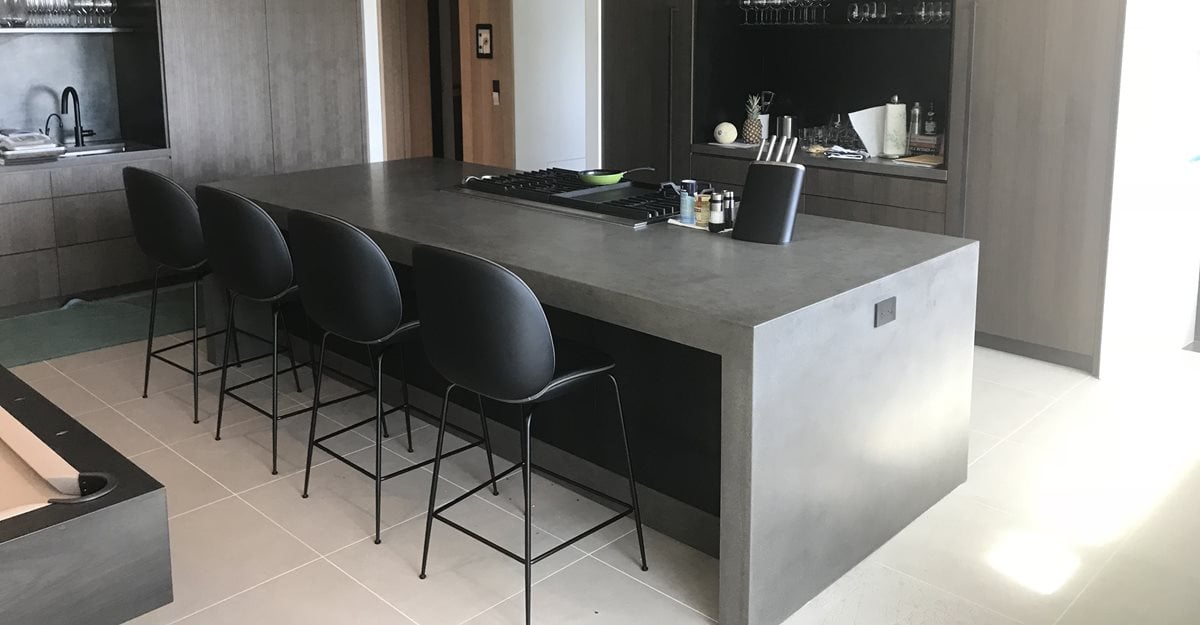
Tips and Tricks: Concrete Countertop Maintenance – Concrete Decor
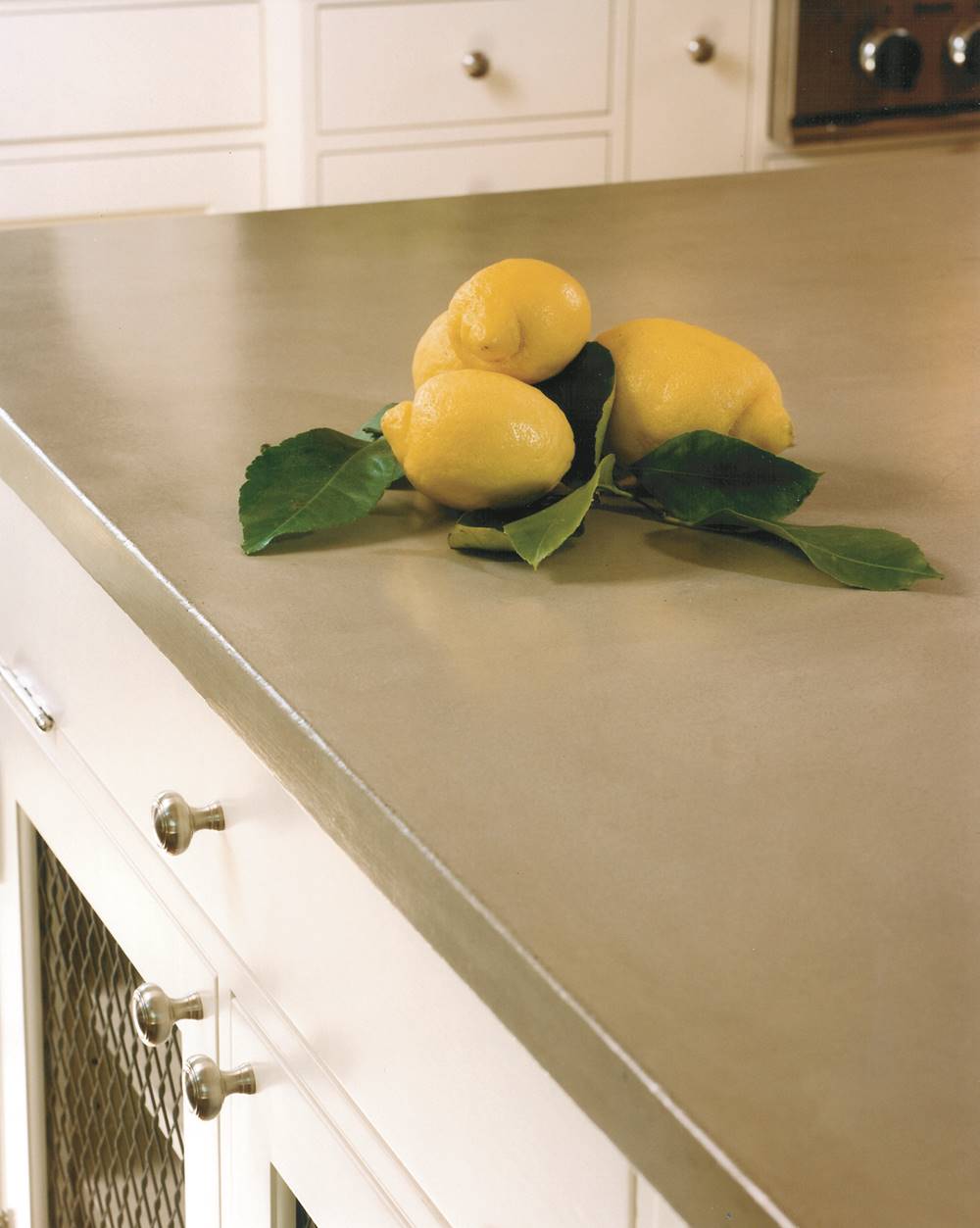
Concrete Countertops – Pros, Cons, DIY Care
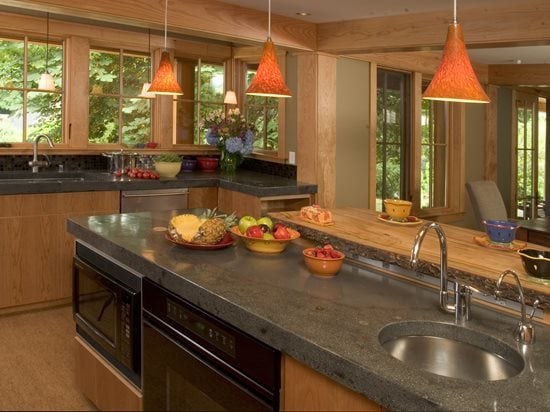
How to Finish Concrete Counters Real Milk Paint
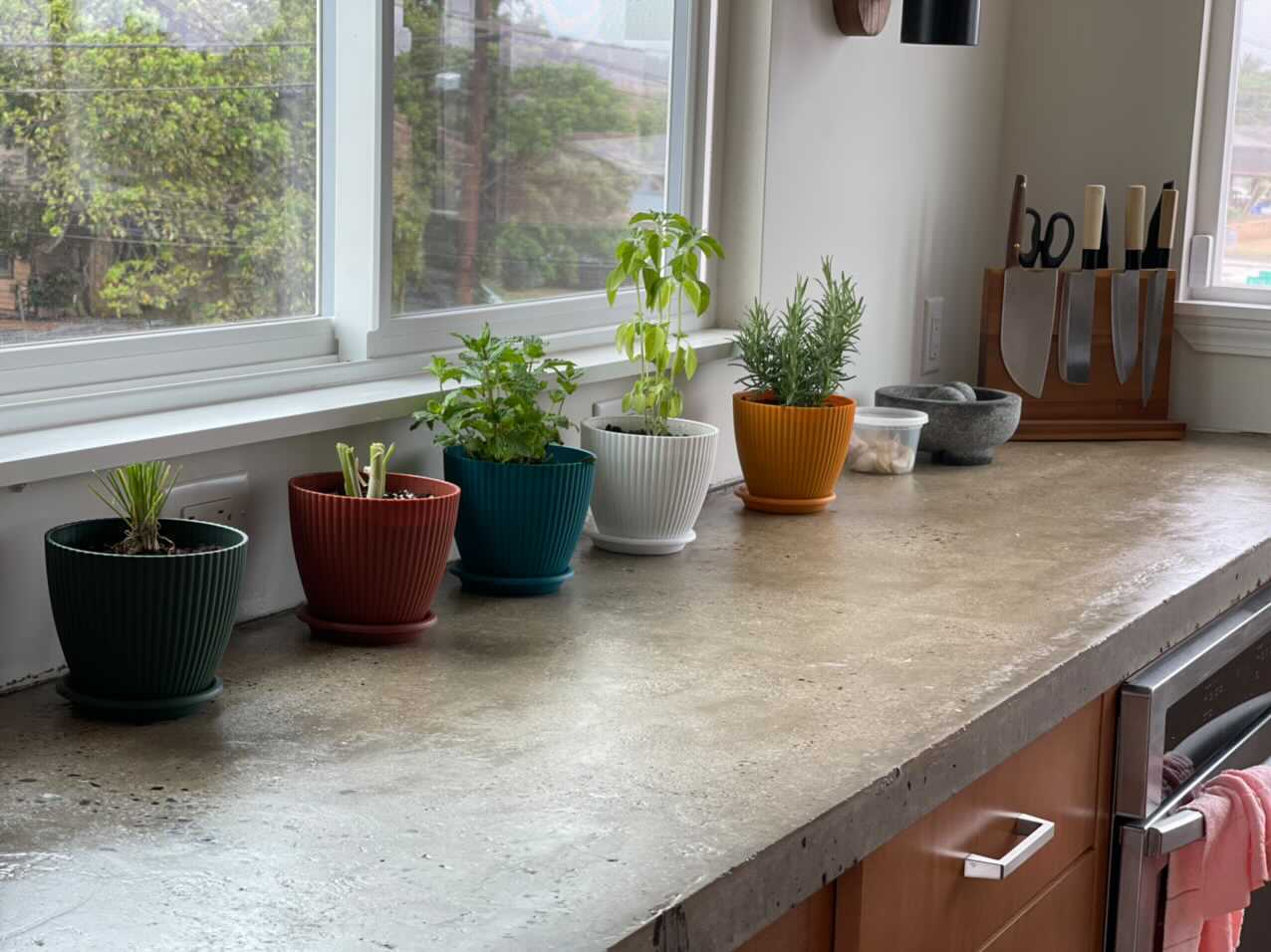
Related articles:
- Concrete Countertops Designs
- Concrete Countertops That Look Like Wood
- White Concrete Countertops
- Concrete Countertop Drainboard
- White Painted Concrete Countertops
- Concrete Countertops Acid Stain
- Unique Concrete Countertops
- Concrete Countertops Refinishing
- Decorative Concrete Countertops
- Overlay Concrete Countertops
